Google declares ORGANICS to be “a lie” and supplements “scams” in latest insane anti-health search manipulation
06/30/2019 / By Mike Adams

If you thought Google was only censoring political content, think again. Just like I warned in a previous Natural News article, Google is now censoring all content about organics, homeopathy, naturopathy, chiropractic, herbs, nutrition and supplements.
Sayer Ji, founder of GreenMedInfo, has put together a damning collecting of evidence proving that Google is maliciously altering search suggestions to try to destroy natural health and naturopathy. It’s all part of Google’s total collapse into pure evil that has also seen Google censoring all conservative, Christian or pro-Trump content.
Make no mistake: Google is pro-pharma, pro-Monsanto, pro-glyphosate, pro-pesticides, pro-chemotherapy, pro-fluoride, pro-5G, pro-geoengineering and fully supports every other toxic poison that endangers humankind.
Google is poison to humanity. (See EvilGoogle.news for more daily reporting.)
Here’s the report from GreenMedInfo, entitled, “GOOGLE: ‘Organic is a Lie, Supplements are Dangerous, Chiropractic is Fake,’ and Other Thoughts They Want You To Think.”
“ORGANIC IS A… LIE, SHAM, MYTH, WASTE OF MONEY, MARKETING GIMMICK”
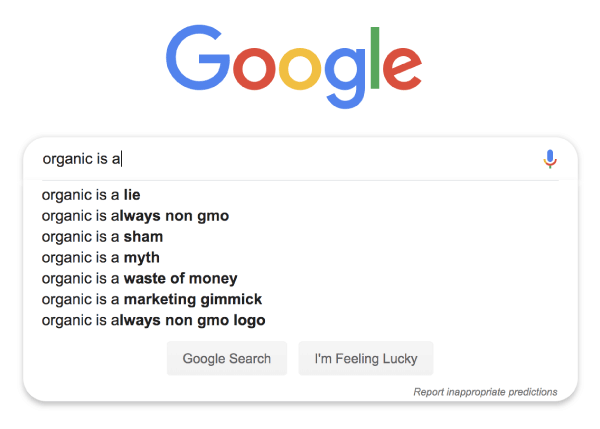
Recently, a shocking discovery was made: Google is autocompleting the search fields of billions of users with false information (topics ranging from natural health to candidates for election), based not on objective search volume data, but an extremely biased political and socio-economic agenda — one that is jeopardizing the health and human rights of everyone on the planet.
On June 3rd, 2019, it was discovered that Google had scrubbed their search results clean of natural health sites, resulting in some losing as much as 99% of their traffic. Soon after, it was discovered that Google also manipulates users with their autocomplete function into thinking that natural approaches to health are fraudulent and even harmful. This is Part 2 of our ongoing series exposing these practices. Part 1 can be found here.
Google manipulates your search results in a very specific way. For instance, if you start your search out with “supplements are,” Google will autocomplete your search field with the following suggestions:
“SUPPLEMENTS ARE BAD, USELESS, NOT REGULATED, DANGEORUS, SCAMS”
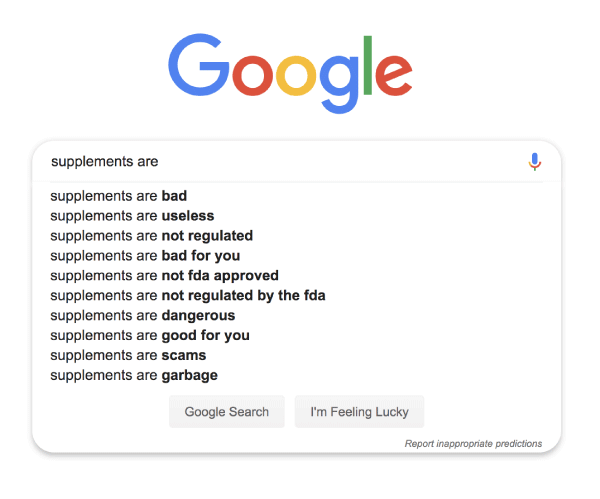
Most Google users believe that its suggestions reflect the volume of searches others are doing on the topic — a reasonable assumption, given Google says their algorithm is “Based on several factors, like how often others have searched for a term.” In fact, Google goes out of their way to say they are not making subjective suggestions, but objective predictions based on real searches:
“Predictions, not suggestions – You’ll notice we call these autocomplete “predictions” rather than “suggestions,” and there’s a good reason for that. Autocomplete is designed to help people complete a search they were intending to do, not to suggest new types of searches to be performed. These are our best predictions of the query you were likely to continue entering.
How do we determine these predictions? We look at the real searches that happen on Google and show common and trending ones relevant to the characters that are entered and also related to your location and previous searches.” Source: Google
But Google Trends data show the “supplements are” autocomplete results above to be inaccurate, if not blatantly falsified. In fact, keyword search volume trend lines show that since 2004, searches for the phrase “supplements are bad” relative to “supplements are good” (in red) are far lower, and the gap continues to increase, with about 5x more people searching for them in a positive rather than negative light. This is the very definition of the Orwellian inversion: where Good becomes Bad, and War becomes Peace.
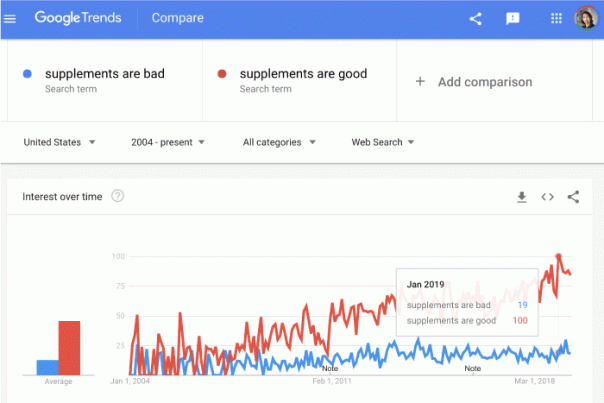
Amazing, a third Google product from its extremely profitable Google Ads division called Keyword Planner, shows an even more accurate quantification of how many searches have actually been performed in the United States in the past month with the phrase: “supplements are bad.” The result? Only 100-1,000 searches, which is between only .2739 and 2.7 people a day.

That’s right, in the entire population of the United States (327,321,076 as of March, 26, 2018), at most 2.7 people type the phrase “supplements are bad” into the Google search engine. But if any of those 327 million people type “supplements are…” into the Google search engine, all 327 million users will have their search completed for them with the suggestion that they are “bad” and search for information on how bad they are.
In order to demonstrate that this result is not a fluke, let’s look at the search “taking vitamins…” and see what Google suggests in their autocomplete.
Example #1: “TAKING VITAMINS IS A BAD”
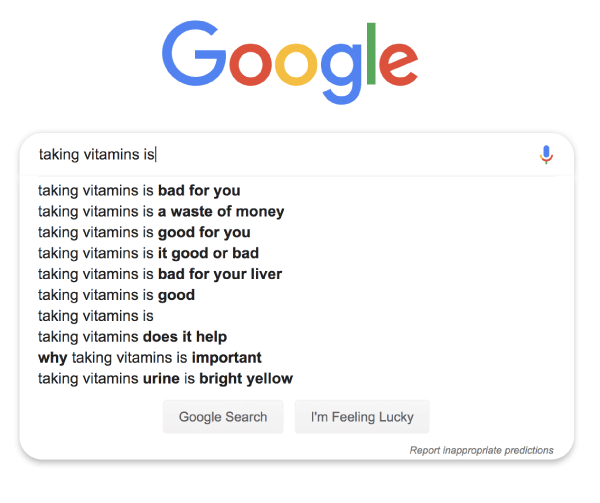
And what does the Google Trend data show? A null result: “Hmm, your search doesn’t have enough data to show here.”
This should not be surprising considering that the vast majority use search engines to field queries and not affirmative statements reflecting foregone conclusions. But that’s how thoroughly a very specific anti-nutritional industry political agenda is embedded within Google’s algorithm.
When we drop this phrase into Google’s keyword planner, what do we get? An astounding 0-10 people search this term every month in the U.S. In other words, no one.
We discussed the potential corrupting influence of pharmaceutical companies, with whom Google partners and receives investment, on their results in our previous article: INVESTIGATION: Google Manipulates Search Suggestions To Promote Pharma, Discredit Natural Health.
Alternative browsers like Duckduckgo, on the other hand, won’t suggest anything because it does not have an autocomplete function as google does, which google states: “is designed to help people complete a search they were intending to do, not to suggest new types of searches to be performed.
Our investigation has uncovered a number of examples like this where Google is placing autocomplete suggestions into the search user’s mind that are not only the opposite of what most people search for, but sometimes do not search for at all — indicating that Google’s ostensibly objective feature is literally a propaganda device programming users to think thoughts they would never otherwise consider.
This has profound implications, as we will explore later, as the so-called Search Engine Manipulation Effect (SEME) identified by researchers in 2013, is one of the most powerfully influential forces on human behavior ever discovered — so powerful, in fact, that it may have determined the outcome of one quarter of the world’s elections in recent years.
But first, let’s look at further examples of Google’s dystopian search results, such as:
Example #2: “GMOS ARE GOOD”
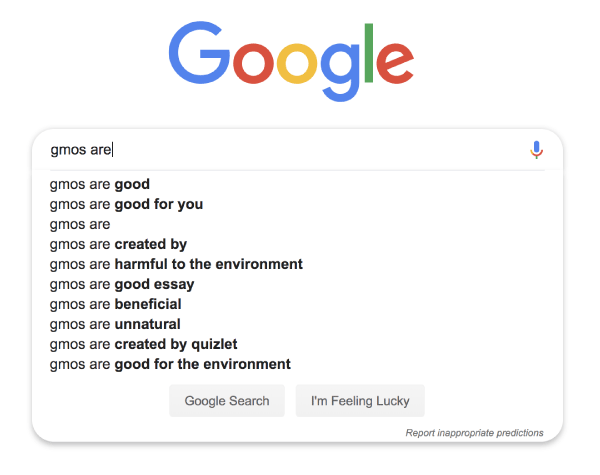
Example #3: “ORGANIC IS A LIE”
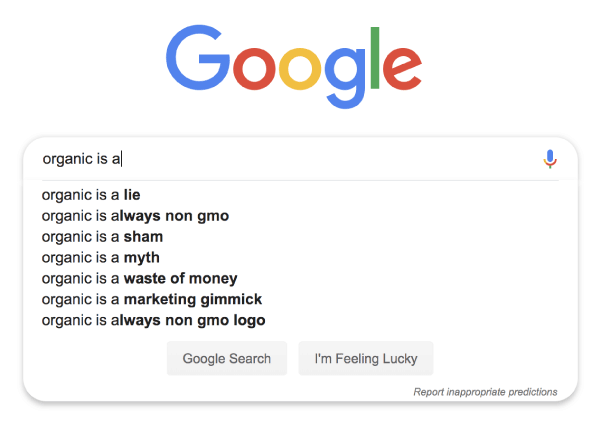
Example #4: “HOMEOPATHY IS FAKE..”
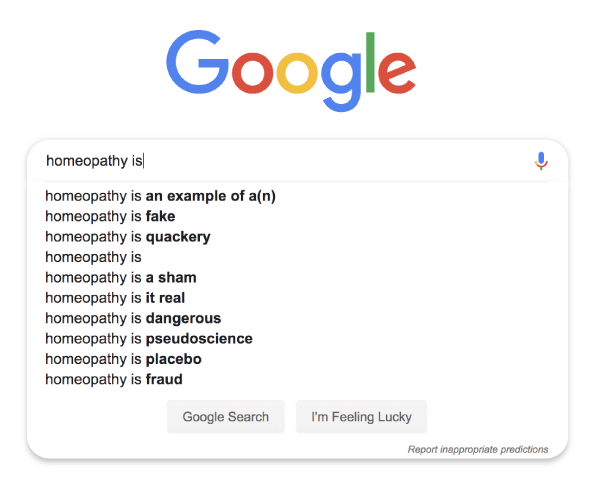
Example #4: “HOLISTIC MEDICINE IS FAKE..”
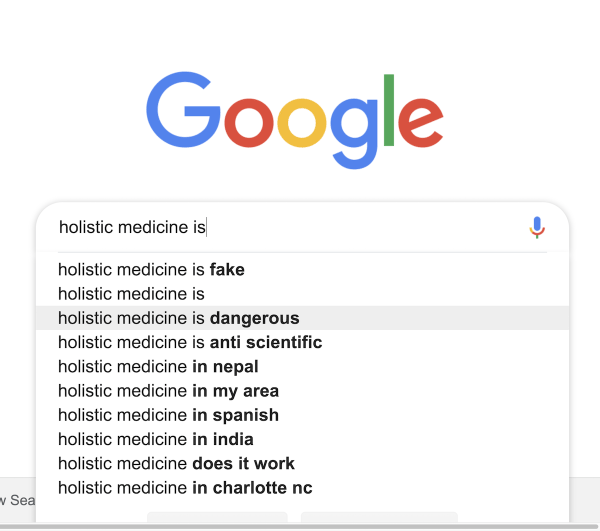
Example #5: “CHIROPRACTIC IS FAKE..”
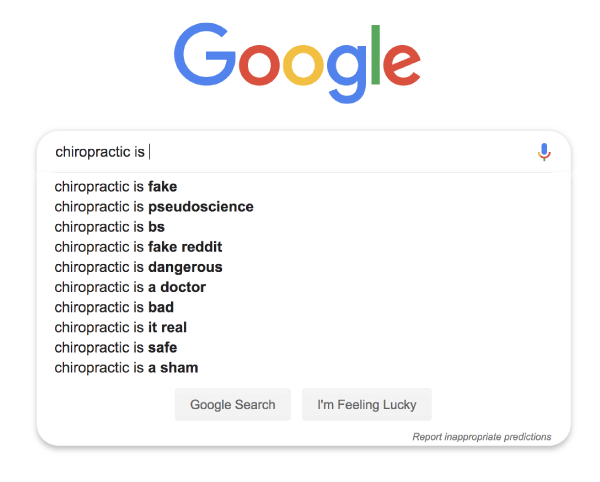
Example #6: “NATUROPATHY IS FAKE…”
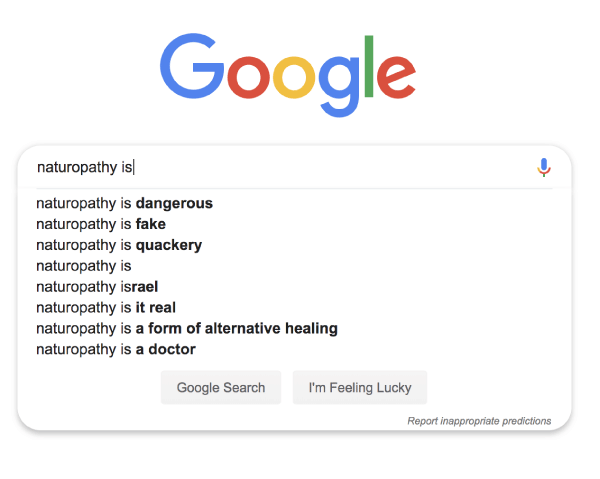
Read more at GreenMedInfo.
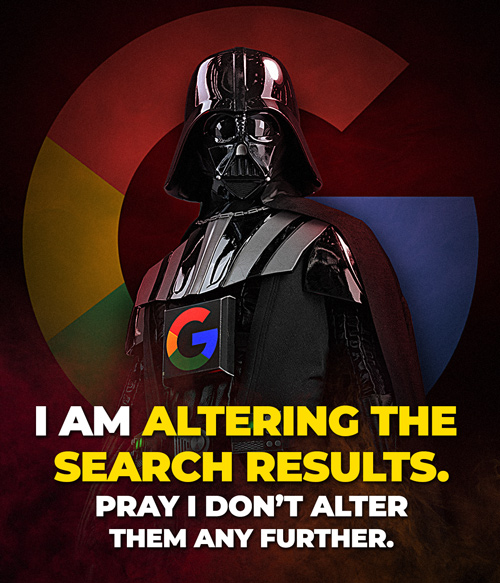
Tagged Under:
RECENT NEWS & ARTICLES
COPYRIGHT © 2017 PESTICIDES NEWS



















